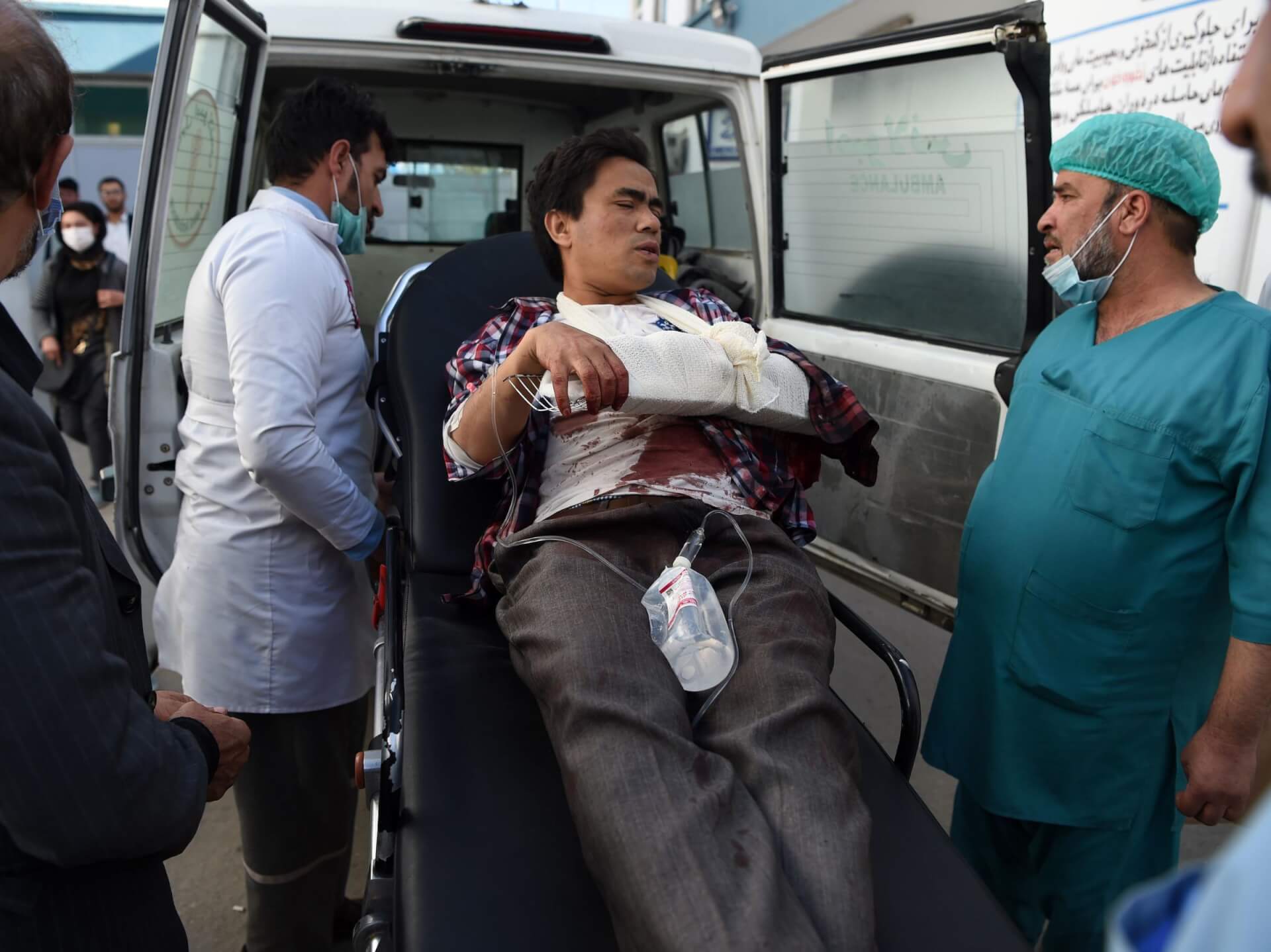On Monday, an attack on Kabul University in Afghanistan led to the death of at least 22 people. Moreover, 22 others were wounded during the hours-long attack. At around 11 AM, a suicide bomber, dressed as a policeman, detonated the bomb inside the campus. Following this, two armed attackers open fired at students. This was then followed by another bomb blast at around 3.20 PM. President Ashraf Ghani came out condemning the attack and called it a “despicable act of terror.” He also announced a “national day of mourning.” He further vowed to “take revenge for this senseless attack.”
According to Hamid Obaidi, the spokesperson for the Ministry of Higher Education, the attack was orchestrated to target an Iranian book fair, which was going to be attended by several Irani and Afghani officials. This included Iran’s ambassador to Afghanistan, Bahador Aminian. Afghani officials said that the attack was executed by three attackers, who were captured and neutralised by the country’s security forces and American troops.
The Taliban condemned the attack and denied any responsibility for the incident. A few hours later, the Islamic State of Iraq and Levant (ISIL, ISIS) came out and claimed responsibility. Through the online messaging app called Telegram, the Islamic State group issued a message saying that the attack was to target “the graduation of judges and investigators working for the apostate Afghan government.” However, compared to the significantly lower number of deaths reported by the Afghani government, the message “celebrated” the death of 80 individuals, which they claimed to include “judged, investigators and security personnel.”
This is the second such incident on an educational institution in Kabul in the last two weeks. On October 24, 18 students were killed after the ISIL attacked an education centre in a Shia-dominated region in Kabul. Academic institutions have often been targeted by several armed groups that operate in Afghanistan over the years. For instance, Kabul University was also the target of another attack last year, which led to the death of eight people. Further, the attack on the American University in Kabul in 2016 led to 12 deaths.
Violence continues to ravage Afghanistan, despite ongoing peace negotiations in Qatar, which began in September. Bashir Ahmad Shakir, a former member of the provincial council at Helmand, raised doubts about the Taliban’s commitment to the negations, saying, “They are talking about peace in Doha but are doing the opposite by attacking houses, properties, roads and spreading fear among people. Afghan people – especially people of Helmand – don’t want the Taliban presence here anymore.”
Several experts view the ongoing violence orchestrated by the Taliban and other groups such as ISIL and al-Qaeda as a major hindrance in the ongoing peace process in Afghanistan. Mushtaq Rahim, an expert on conflict, peace and security, said, “People start questioning the whole process even at a time when [the negotiators] are closing in on a potential deal … seeing these heinous attacks on civilians and civilian installations creates a negative mood among the public, and the government will also have to take a hard approach to manage people’s expectations.”
IS Attack on Kabul University Leaves 22 Wounded, 22 Dead
President Ashraf Ghani came out condemning the attack and called it a “despicable act of terror.” He also announced a “national day of mourning.” He further vowed to “take revenge” for the attack.
November 3, 2020

SOURCE: AFP
